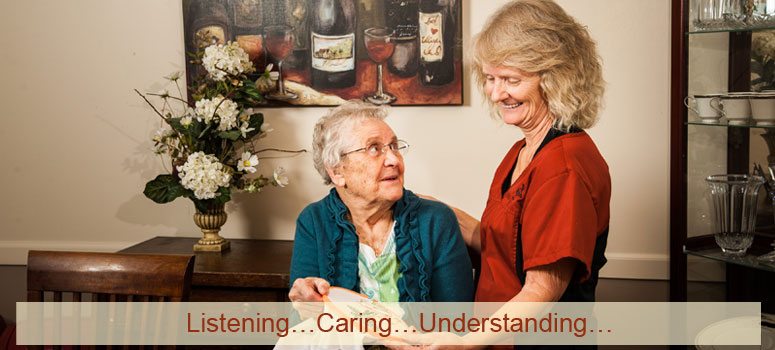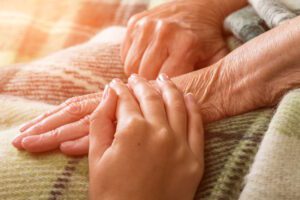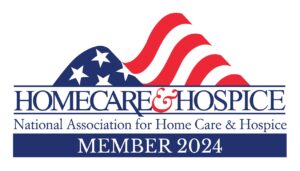Phoenix Home Care & Hospice distinguishes itself from other home health care agencies by cultivating a caring, compassionate nature in every interaction we have with our clients. In our mission, we highlight three pillars: compassion, honesty, and patience.
Part of this mission includes interpersonal skills imbued in the home health nurses who work for us. Today’s blog explains what it means to have active-listening skills as part of your duties as a home health nurse.
Related Post: Home Health Nursing Skills
What Is Active Listening?
Active listening involves more than just your ears. This skill involves hearing what people are really saying, then communicating that you are interested so they will continue to share their thoughts.
Make a conscious effort to listen to their words, observe their nonverbal communication, show you are interested, and encourage them to continue their narrative. As a home health nurse, active listening is a vital skill in your daily duties.
How to Fully Engage in Active Listening
In order to fully engage in active listening, you must pay attention to the other person very carefully. You can’t be distracted by whatever else is happening. The person in front of you is the most important thing at that particular moment. It’s almost like being a parent to a newborn baby. You have to pay attention to everything your baby does because your baby can’t necessarily talk to you.
Although your clients may communicate aptly, you must still pay attention to not-so-obvious signs that something has changed. Home health nurses must make decisions that can help patients heal and recover. As such, you must notice subtle differences from the last time you visited a client.
Verbal and Nonverbal Cues
Home health care nurses must listen to the words their patients say to them. But you must also observe the patient’s body language. For example, your client looks more tired this week compared to last week. Perhaps the person is yawning more or starting to nod off, both of which are not usual behavior.
Rather than sound an alarm by saying, “You look very tired,” try something gentler that encourages them to define the situation. “How have you been sleeping, Mr. Smith?” Then you can listen to their explanation, observe their response carefully, and encourage them to continue sharing details, feelings, and health information.
“I’ve been sleeping less these past two nights.” Now you can ask relevant questions to learn more. Is it dietary? Stress? Pain? A new bed? Eventually, you can help assess what your patient needs.
Developing Rapport With Clients
By observing nonverbal cues from a client, you can identify your patient’s unspoken needs and concerns. By using your own nonverbal communication, you can show that you are actively listening by nodding, making eye contact, and having an open posture.
Nonverbal communication helps you develop rapport because your client feels genuinely understood. Having a better understanding and relationship with a client improves health outcomes and helps your patient be more at ease with you as a home health nurse.
Related Post: Why You Need Fantastic Organizational Skills in Home Health Nursing
Home Health Nurses at Phoenix Home Care
Phoenix Home Care & Hospice specializes in caring for clients at home, where we believe the best healing takes place. Our home health services can help you or your loved one navigate the healing process, whether you need help following a hospital discharge or you require long-term healing. Contact Phoenix Home Care online or call toll-free 1-888-830-2388 for more information on what we offer.






